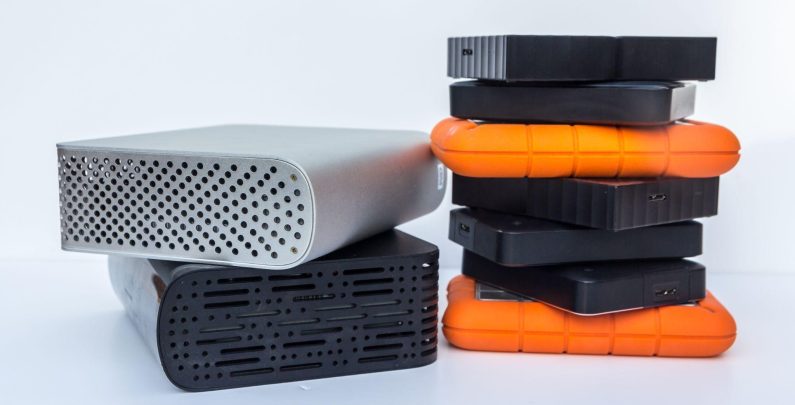
6 Inadvisable Methods to Handle Old Hard Drives
Once upon a time, placing magnets on a computer hard drive may have effectively destroyed hard drive data when disposing of old hard drives. But today’s hard drives are more resilient than ever against magnets. Even if a magnet corrupts data, modern technology allows for potential data recovery.
Here are six other ill-advised methods of disposing of old hard drives, which, in reality, heighten the risk of a data breach:
- Erase or Wipe Data: A report found that of 159 used drives purchased on eBay in the U.S., U.K., Germany, and Finland, sensitive data was discovered to be present on 42% of devices, with 15% containing personally identifiable information (PII).[1]
- Neglect It: Confidential data on old hard drives remains a security risk as long as it exists. Irrespective of size, all companies handling private information are susceptible to information theft. Furthermore, all companies have a legal obligation to comply with data protection laws and ensure the security of private information, from creation to disposal.
- Format the Hard Drive: Even after a full format, data can often be recovered from a drive. Special software can frequently retrieve data, similar to the “delete” issue.
- Physically Damage the Hard Drive: While theoretically effective, it is neither recommended nor practical in a corporate and professional environment. All hard drives, including old computer hard drives, retired servers, unused flash and external hard drives, mobile devices, and photocopier hard drives, should be securely destroyed by a professional destruction company that issues an official Certificate of Media Destruction for proper record-keeping.
- Store Obsolete Hard Drives:Many workplaces lack a hard drive shredding policy, leading them to stockpile hard drives on-site. Even if hard drives are kept in a locked storage area, the information still exists and can be stolen.
- Recycle Hard Drives: There is no guarantee that hard drives sent for recycling will not be accessed by information thieves. Data security management must be an integral part of any recycling process.
How to Irreversibly Destroy Hard Disks and Drives
The most effective method for disposing of hard drives and permanently eliminating digital data that is no longer required is to have them physically destroyed by a professional document destruction company. This is one of the quickest and most secure ways to ensure that data on an old hard disk or drive is permanently destroyed. Additionally, when possible, components of degaussed, shredded, or crushed hard drives should be securely recycled.
Consult with your document shredding partner about specialised hard drive destruction services. Your supplier should offer a secure chain of custody process with regular collections of hard drives and e-media by security-vetted and trained information security professionals. Learn more about the ZircoDATA secure hard drive destruction process.
Sources:
[1] Blancco Technology Group
Disclaimer: This article is provided for your convenience and does not constitute legal advice. Readers should not take, or refrain from taking, actions based upon the content of this article. Prior results do not guarantee similar outcomes. Please seek professional legal advice.
